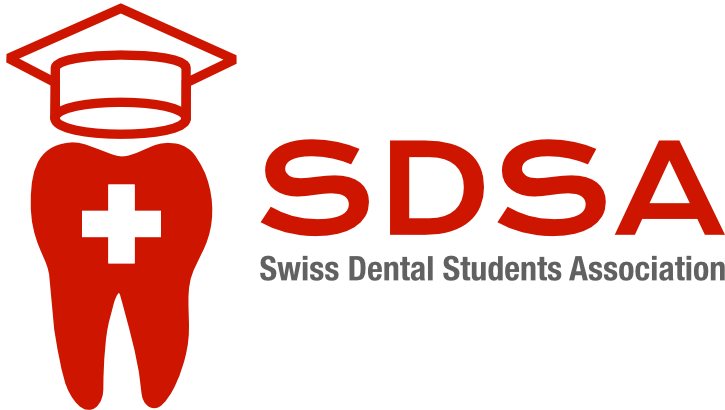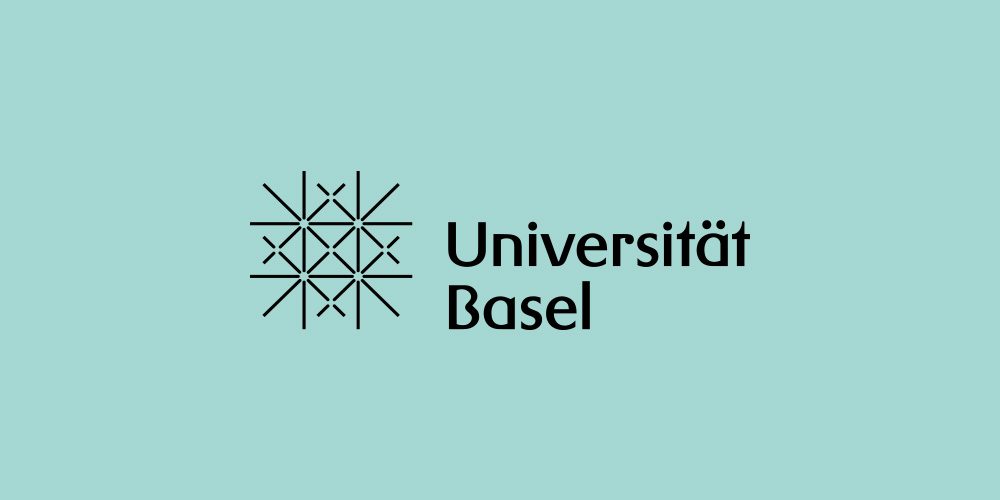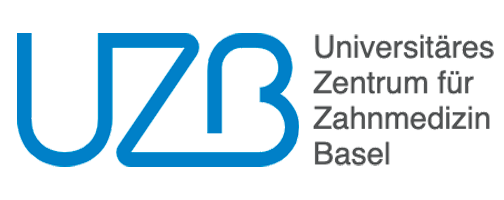Building and lecture halls
In August 2019, the “Universitäre Zentrum für Zahnmedizin Basel” (UZB) moved to its new location at Mattenstrasse 40 in Basel, providing a very modern infrastructure for patient treatment, teaching, and research.
The spacious seminar and group rooms as well as a large lecture hall with 150 seats provide enough space for events, lectures, and continuing education.
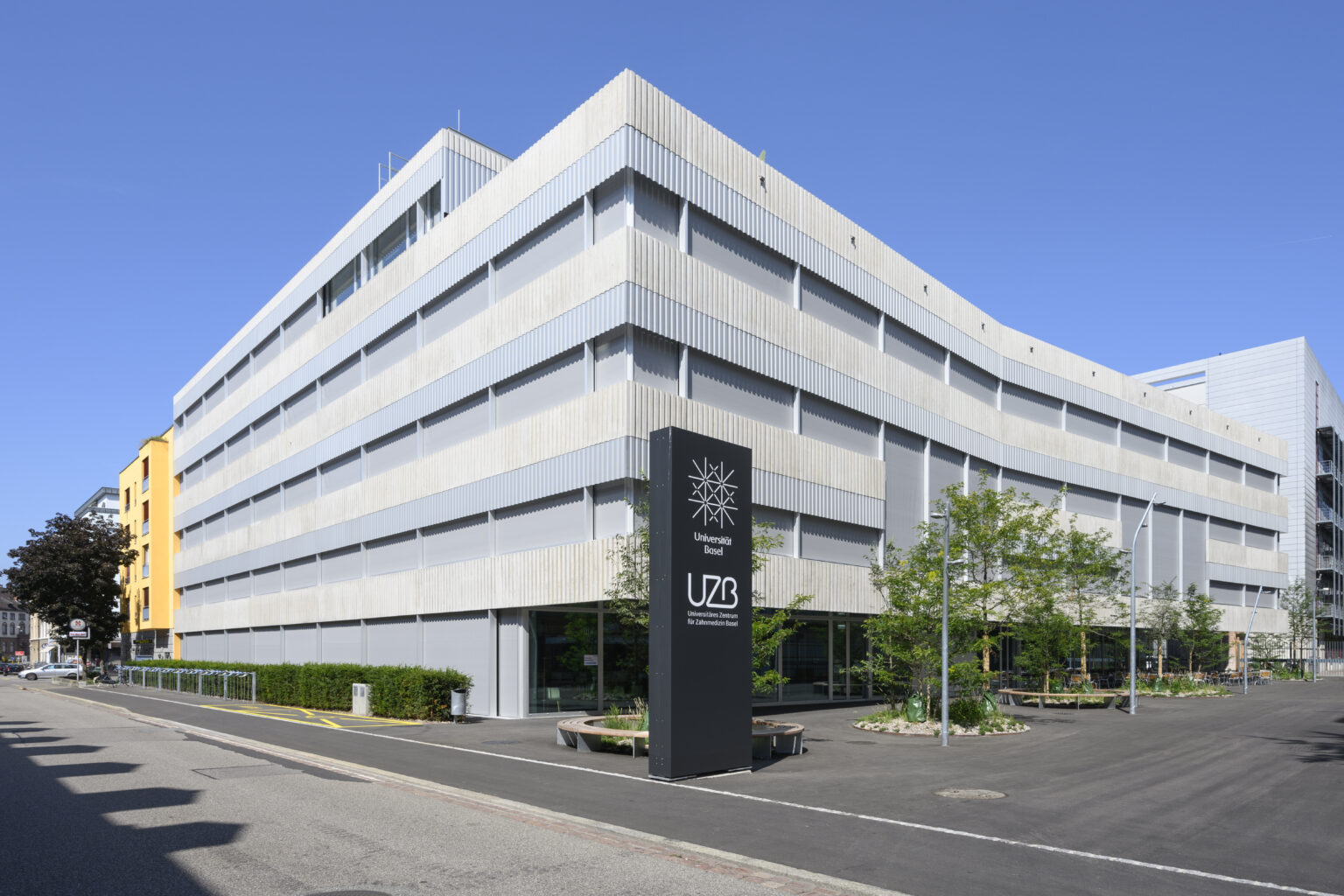
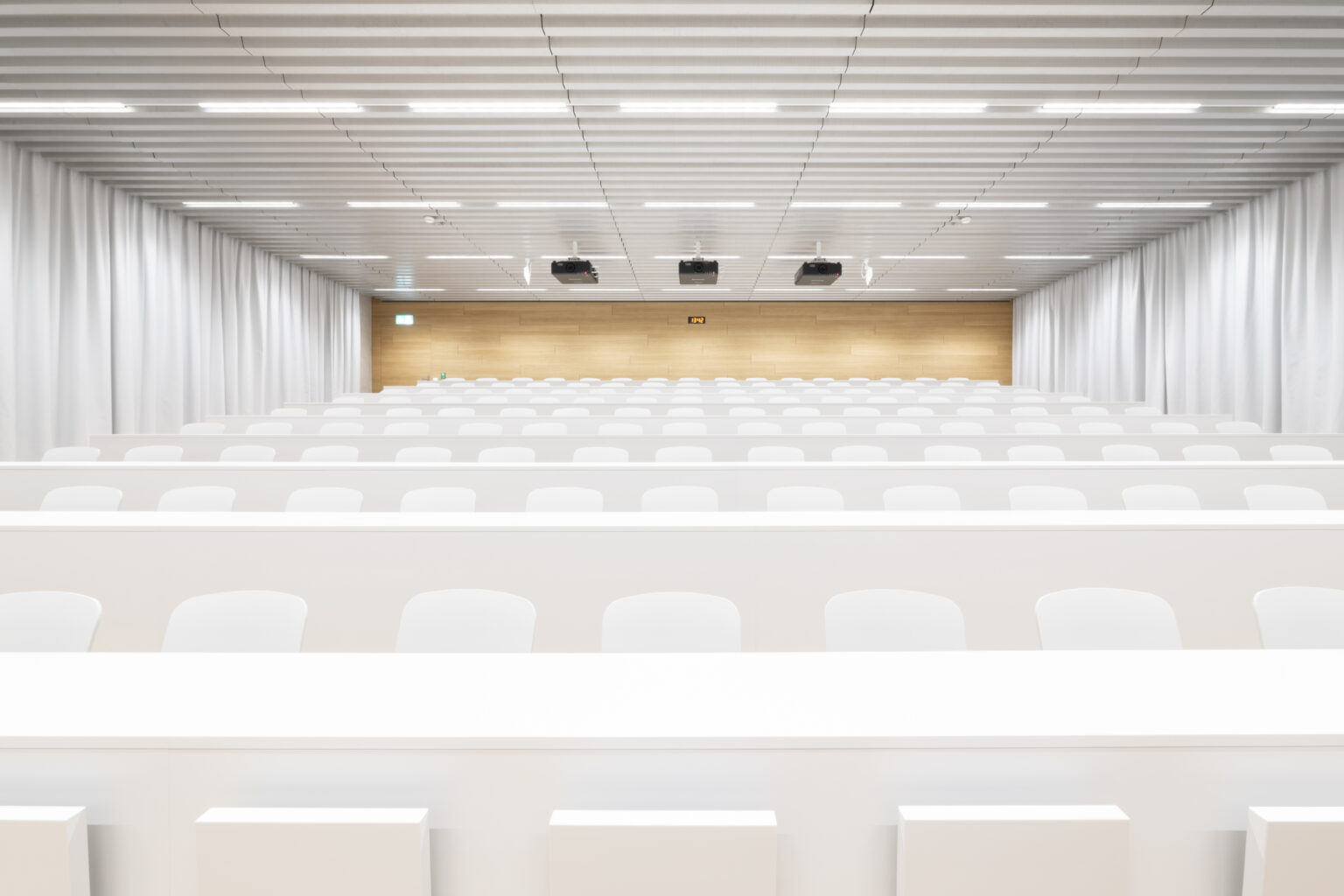
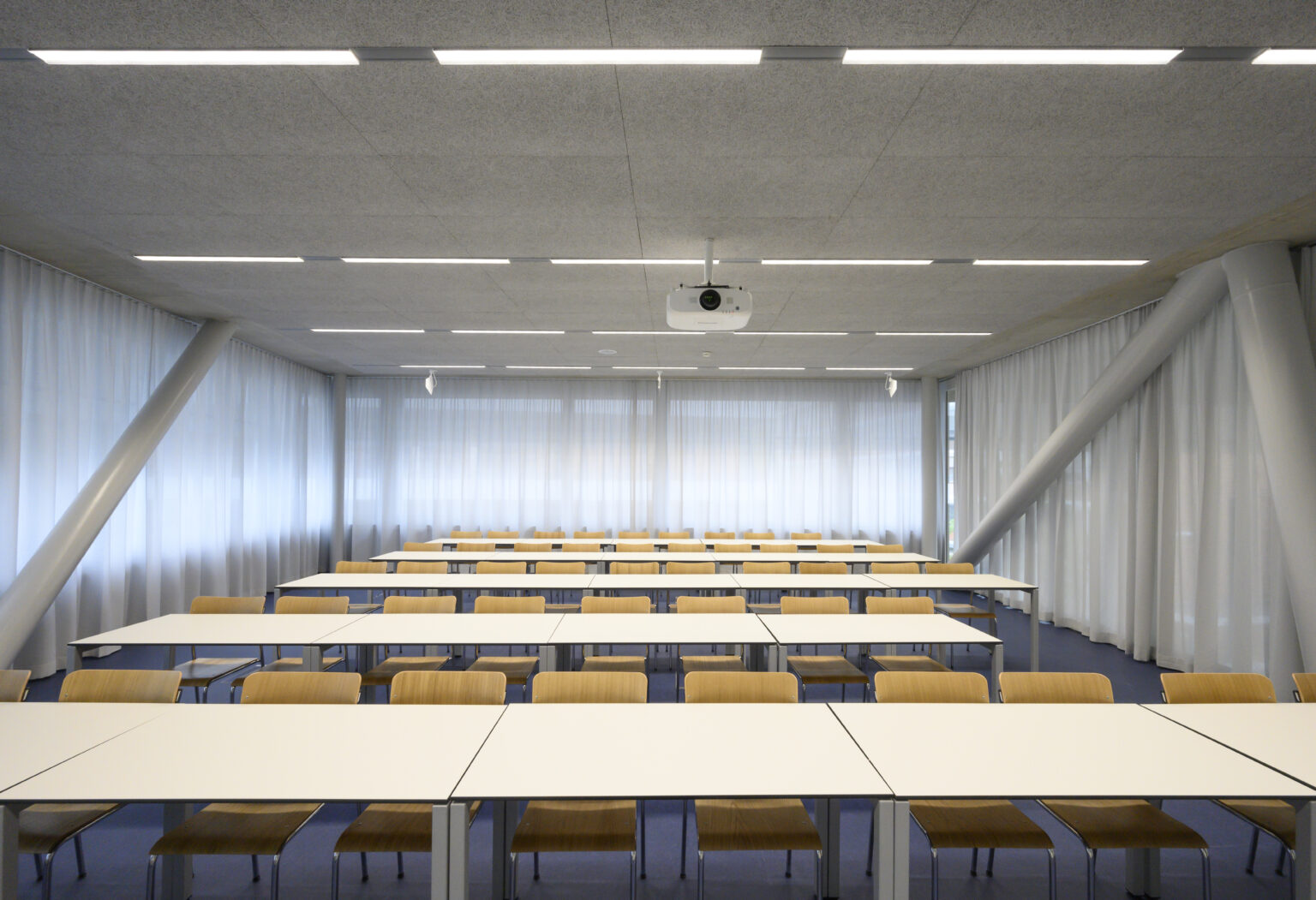
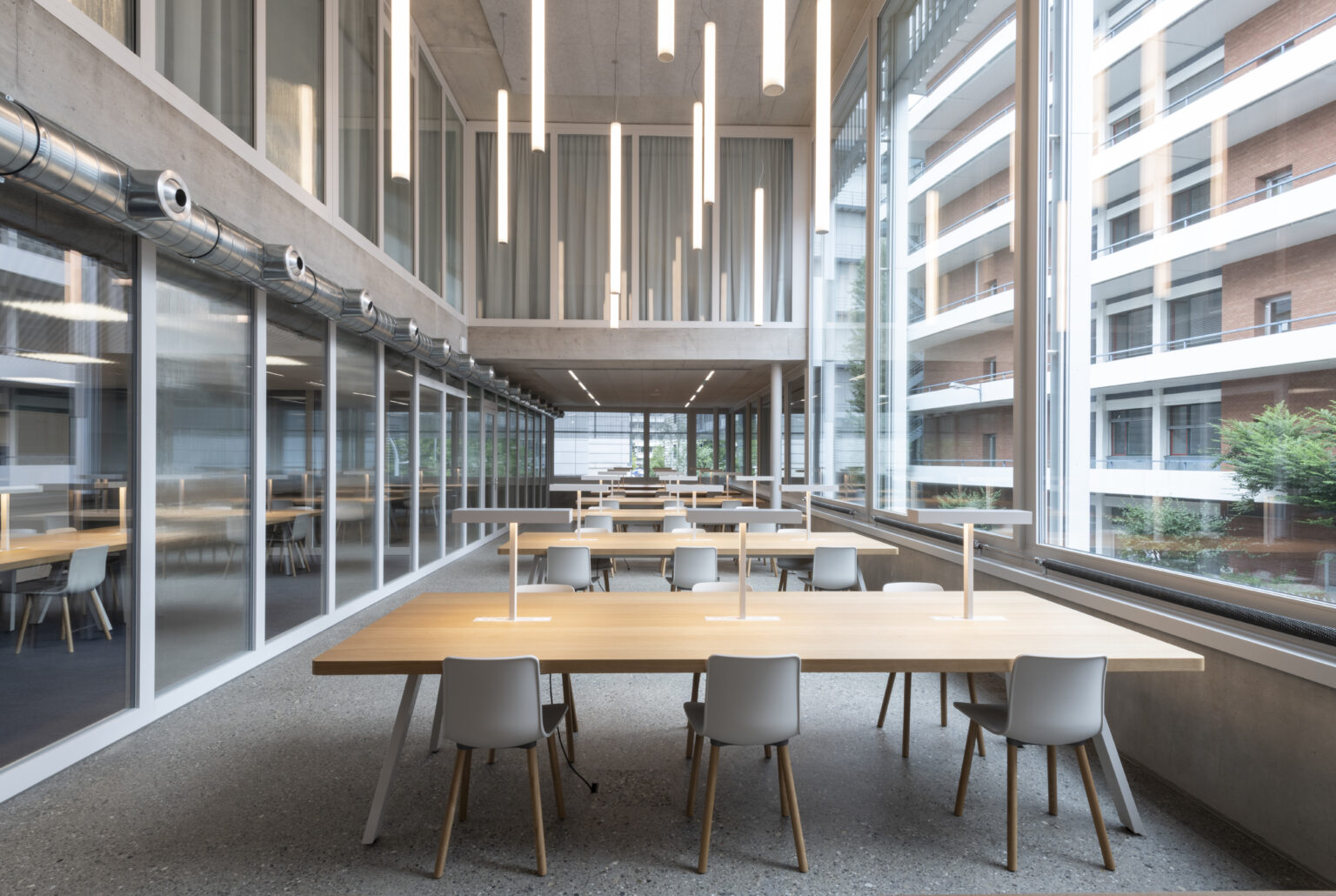
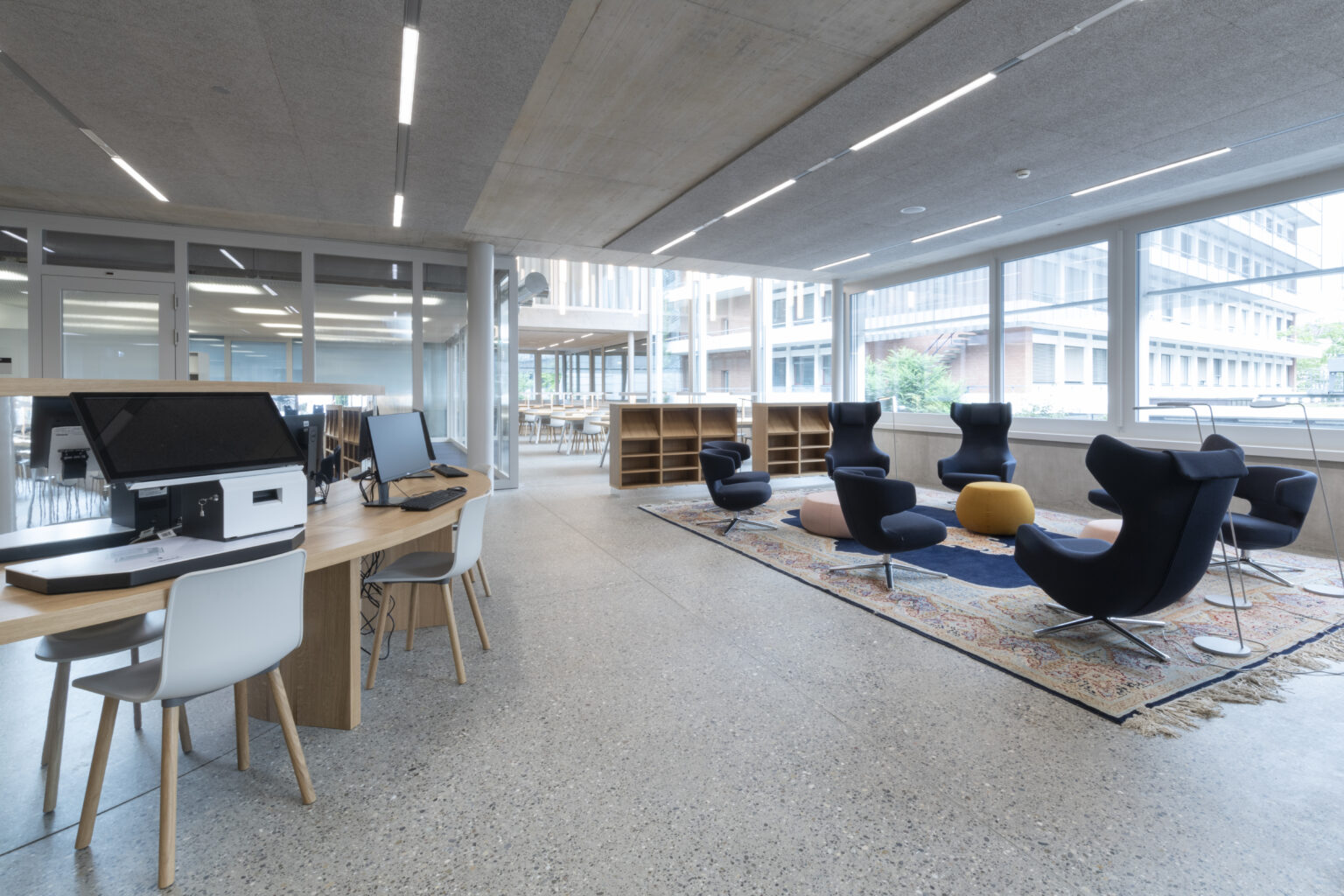
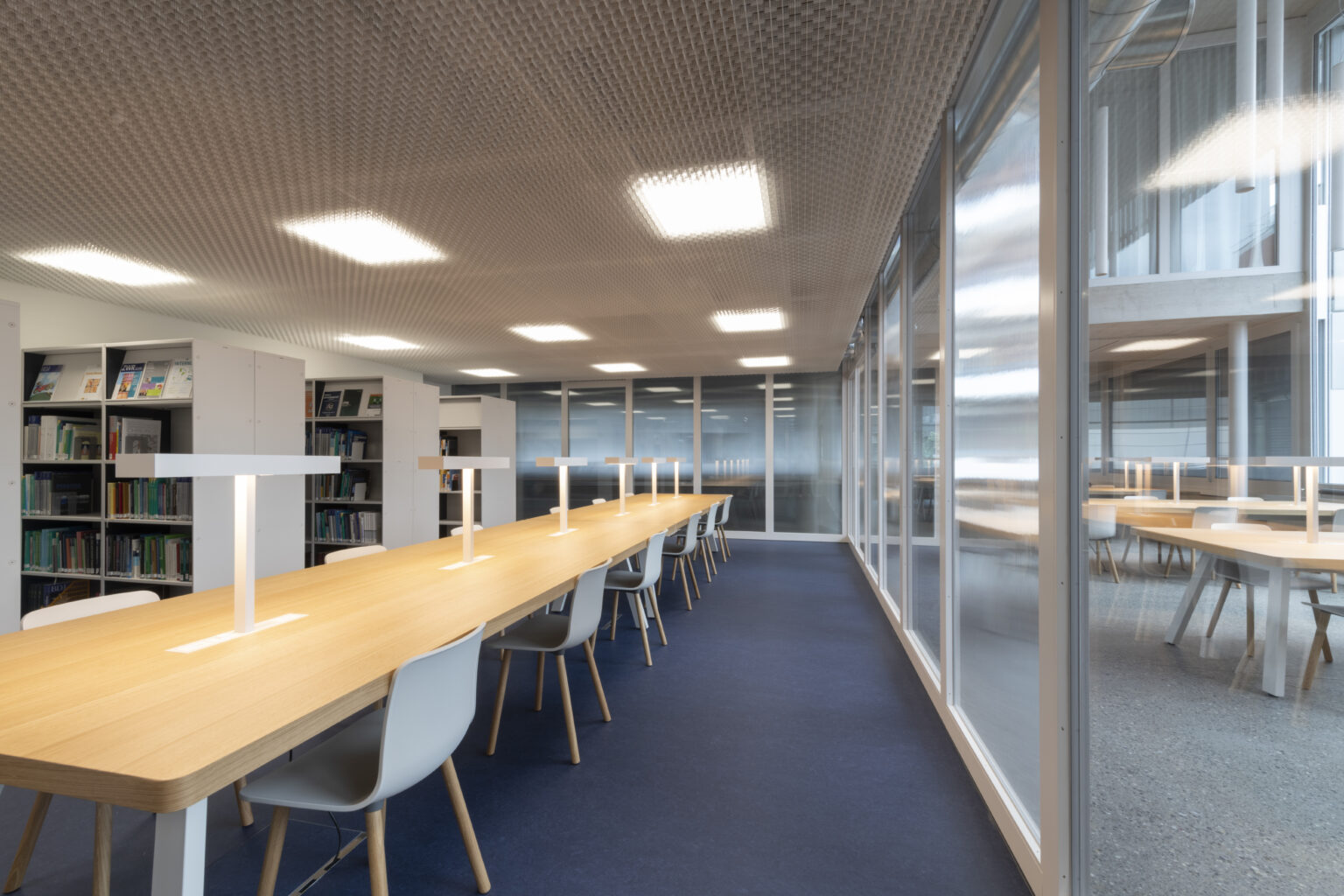
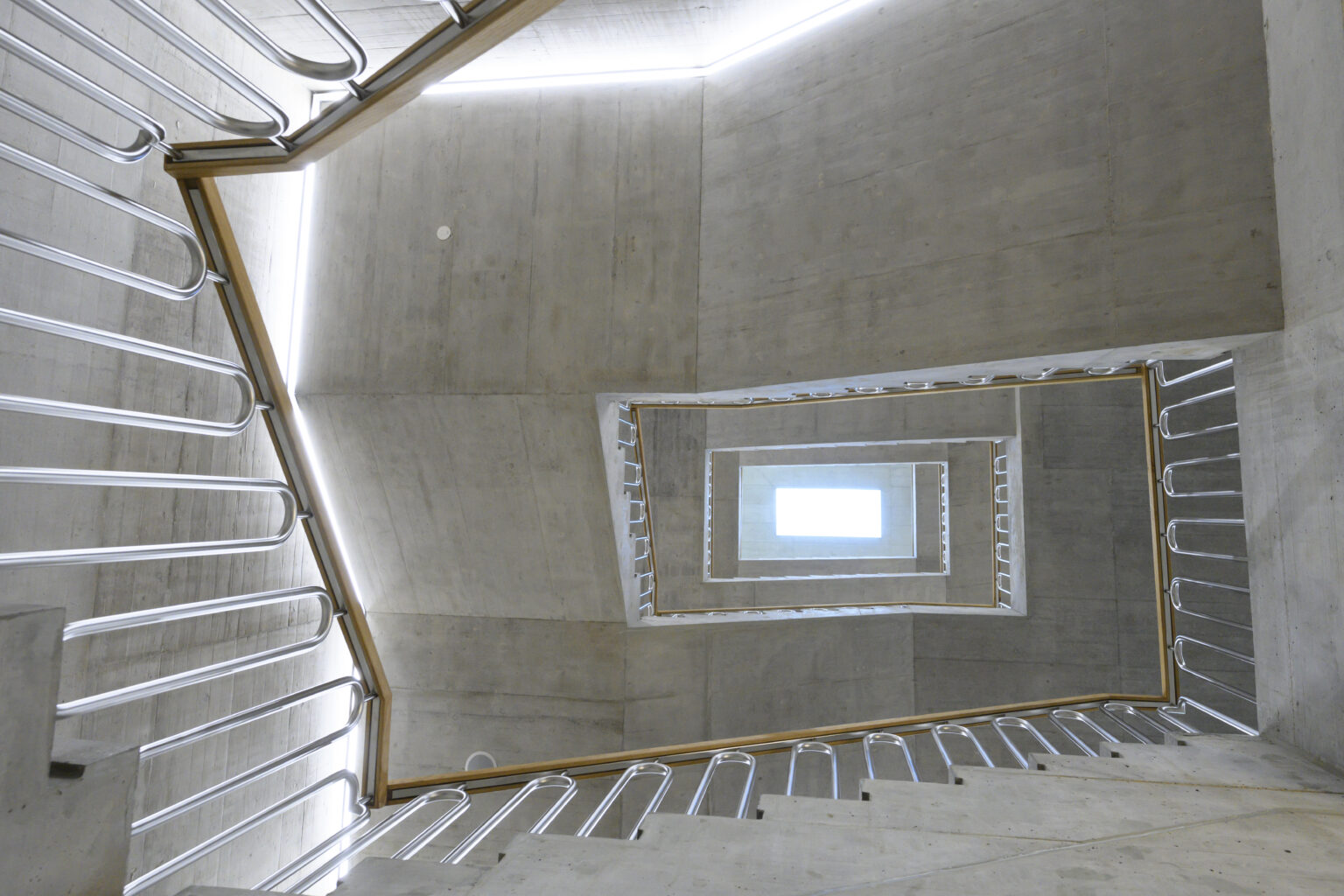
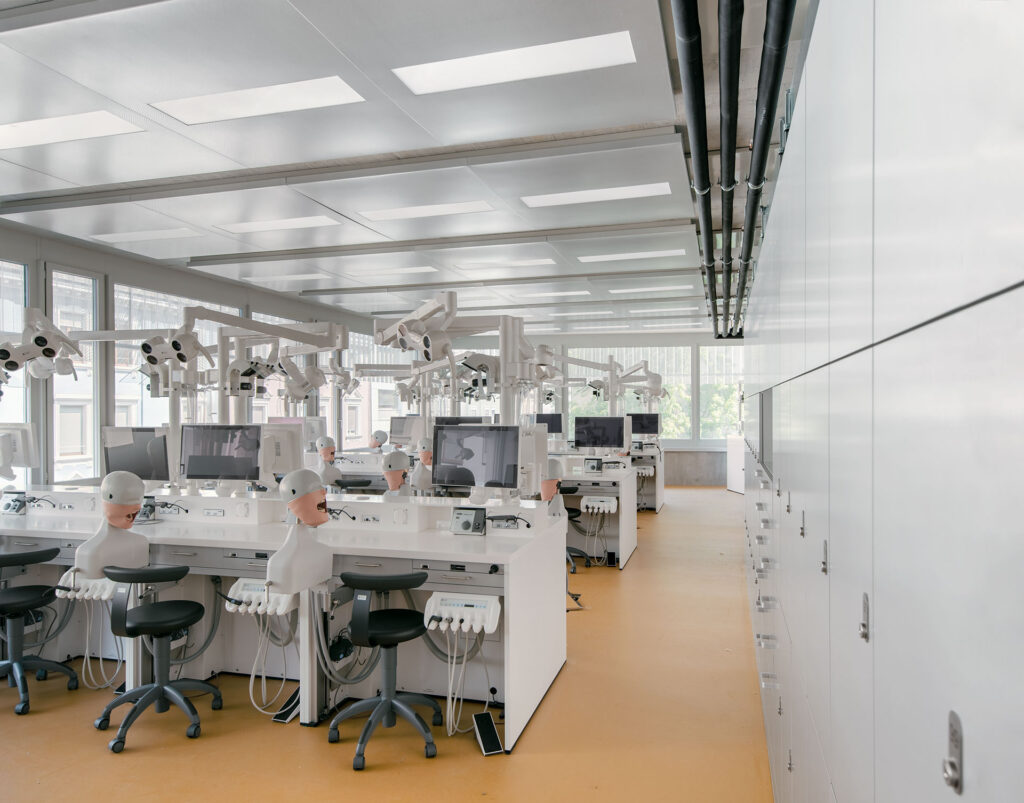
The training priorities of the program include:
- Foundations of dentistry and medicine, such as pathology, pharmacology, internal medicine, dermatology, microbiology, and general surgery
- Conservative dentistry with a focus on periodontology, endodontics, and cariology
- Reconstructive dentistry, including fixed and removable prosthodontics, as well as comprehensive rehabilitation
- Orthodontics and pediatric dentistry
- Dental surgery, stomatology, and radiology
- Dental biomaterials
- Propaedeutic courses, including work on simulators
- Introduction to clinical work
- Assisting with operations and at the outpatient clinic
The 3rd year of the Bachelor's program, the entry into the practical-clinical education
In the first and second years of the Bachelor’s program, students are taught the foundations of human and natural sciences as well as basic medical knowledge. Most of these courses are taken alongside students in the human medicine program. One unique aspect of the program in Basel is the early exposure to dental medicine through courses such as “Dental Practice” and “Learning through Projects” in the first year, as well as the specialization in “Dental Medicine” in the second year.
The focus of the third year of the Bachelor’s program is on practical-clinical specialized training in basic dental subjects, as well as phantom courses designed to teach fundamental skills and knowledge.
In a beautiful and brightly lit phantom hall with 32 workspaces, students simulate treatment processes on phantom heads. At the same time, they learn about materials and their properties in the dental laboratory, and create prostheses, crowns, bridges, and other dental appliances on their own. They receive support from a team of friendly and patient dental technicians.
The training is further completed with additional practical courses in orthodontics, as well as initial exercises in suturing and courses in anesthesia.
A course in radiography is included in the program to teach the basics of radiation protection. Students learn how to handle radiology responsibly and understand its importance in diagnostics. After successfully passing the exam at the end of the course, they are authorized to perform radiography on their own.
During the spring semester, students are provided with an introduction to clinical work, giving them the opportunity to apply their theoretical knowledge to practical use on each other and treat their first patients.
During the 3rd year of the Bachelor’s program and throughout the Master’s program, the students regularly assist surgeries and emergencies at the outpatient clinic in the so-called “Polidienst.”
The third year of the Bachelor’s program also includes a significant theoretical component, with numerous lectures on dental and relevant general medical topics. Many of these lectures are directly related to the practical courses, creating an optimal balance between practice and related theoretical knowledge.
The competencies acquired by the students are continuously assessed through twelve “Haupttestate” (six in each subject area of conservative dentistry and reconstructive dentistry), which are graded on a scale of zero, one, or two points. In order to successfully complete the Bachelor’s program, students must receive six or more points in each subject area from the “Haupttestate” and pass the semester exams.
Master's program
Your statement is correct. The University Center for Dentistry Basel (UZB) has a total of 87 treatment rooms that are spread across five floors. The student clinic has 24 large treatment rooms that are available for students to treat patients independently under supervision. These rooms are modern and fully equipped with a treatment chair, an X-ray machine, and two computers for administrative work.
he Master’s program is designed to closely model the future work environment of dentists. In this program, two students share a treatment room and form a team for two years. They care for patients, organize their work independently in the student course, and handle administrative responsibilities. They are supervised by assistant dentists and senior doctors from the respective clinics to ensure that they receive proper guidance and feedback.
In the student course, the Clinic for Cariology, Endodontology, and Periodontology (PEK) and the Clinic for Reconstructive Dentistry (Prosthetics) teach core competencies for three half-days per week each. The aim is to provide students with a broad and comprehensive foundation in all areas of dentistry. During this two-year program, each student is responsible for their own small patient base, giving them hands-on experience and responsibility in patient care.
In addition to the clinic routine, students in the Master’s program deepen their practical skills through lectures and seminars on the respective areas of expertise. Literature seminars address significant topics in dentistry and provide students with the opportunity to explore current research and trends in the field. Students can also present their most interesting patient cases in detail to fellow students as case presentations. This allows them to share their experiences and learn from each other in a collaborative environment.
The Master’s program at the University Center for Dentistry Basel (UZB) also includes opportunities for students to participate in the triage service and expand their knowledge in courses on orthodontics. Additionally, students have the opportunity to participate in patient visits at the oral and maxillofacial surgery department of the University Hospital Basel, which allows them to gain valuable insights into the treatment of complex cases. The program also includes consideration for pediatric patients, ensuring that students are equipped with the skills and knowledge necessary to provide comprehensive care to patients of all ages.
Similar to the third year of the Bachelor’s program, the Master’s program includes five clinically practical “Haupttestate” per clinic, which are individually tailored to the treatment plan and type of care that each student performs at that time. These “Haupttestate” are designed to assess the students’ practical skills and their ability to apply theoretical knowledge in a clinical setting. At the end of the Master’s program, students must pass a practical-oral exam that covers the most important work they have completed troughout their program. Upon successfully passing this exam, they are considered to have completed the Master’s program and are granted admission to the Swiss board exam for dentistry.
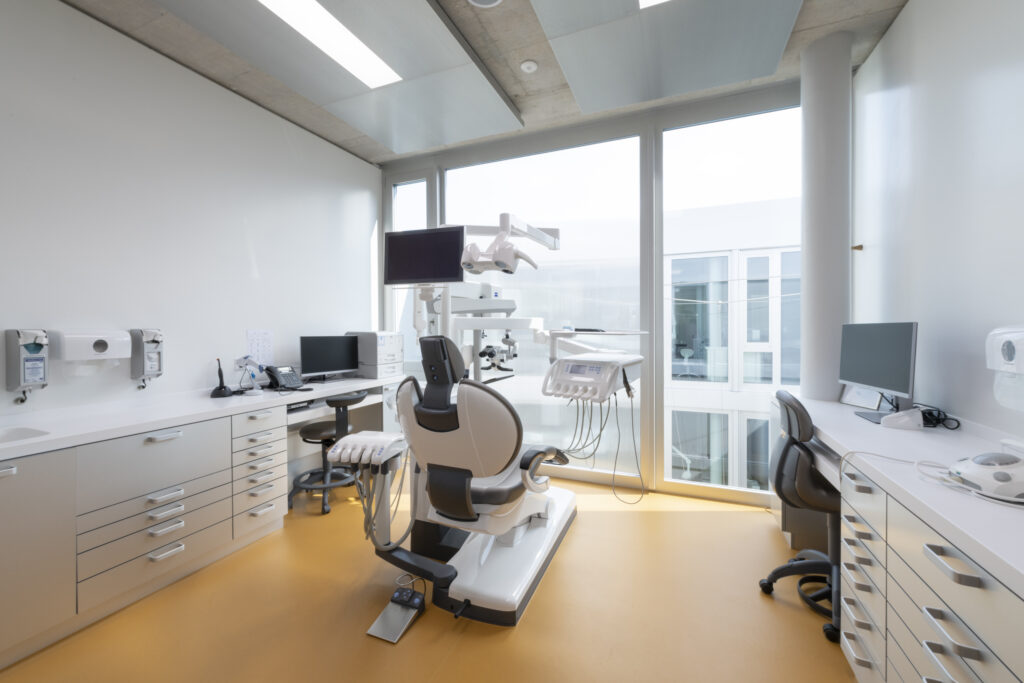
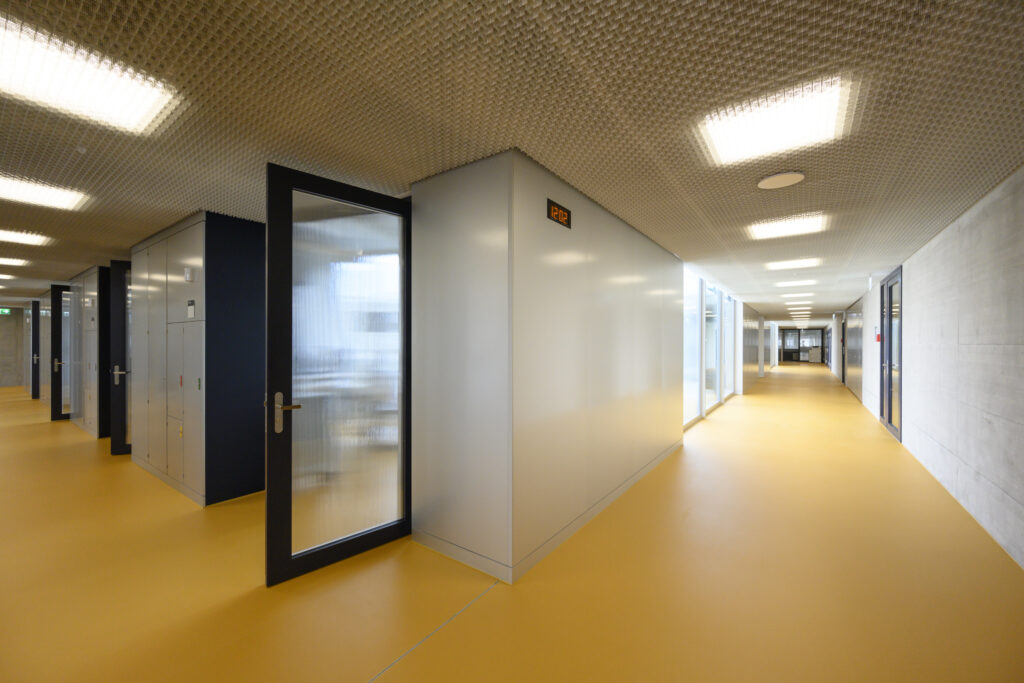
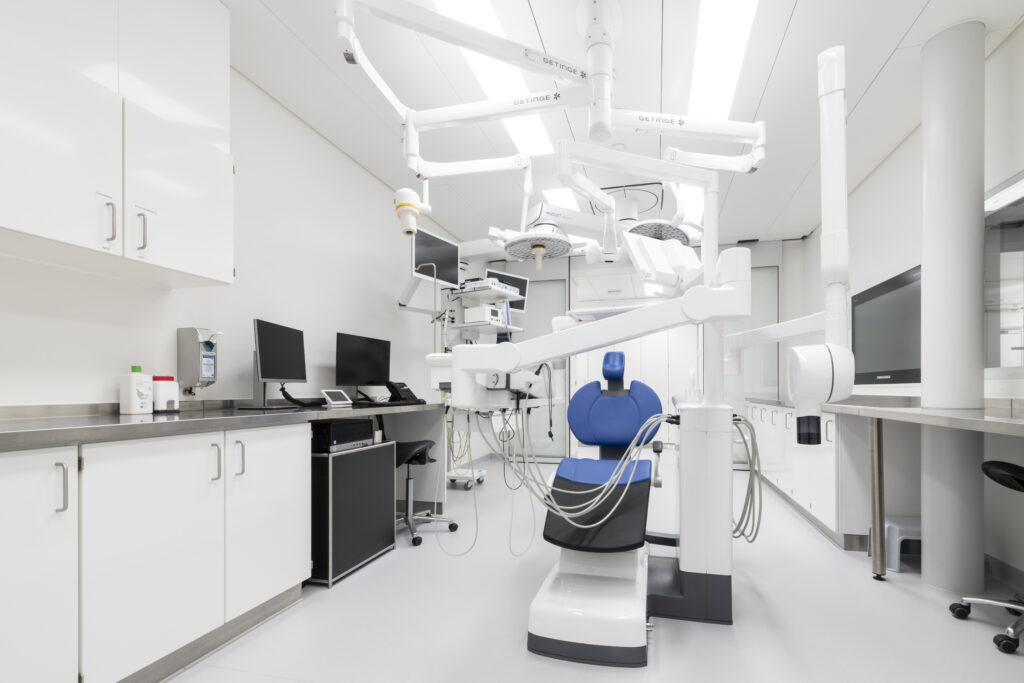
Progress as a tradition of the UZB, a matter of the heart.
What sets us apart
Dentistry is a field that is very familial and early on well connected to the respective training clinics. At the University of Basel, the first two years of the dental program focus on human medicine with initial points of contact to dentistry. To help students get started with clinic life, the Faculty of Medicine at the University of Basel has introduced a subject called “Project-based Learning.” In this course, dental students work in small groups in a clinical and practical setting at an early stage and are supervised by students in higher semesters. For example, they organize taster days in the Clinic for Oral Surgery or afternoons in the Phantom Hall to introduce younger students to everyday clinic life and basic procedures. Additionally, to facilitate entry into the clinic, the younger dental students have the opportunity to turn to the experienced higher years in a “godfather/godmother” project, who are happy to provide them with many tricks and tips.
Although the study of dentistry is very time-consuming and demanding, it is also considered one of the most beautiful professions with infinite potential for development. At the University of Basel, dental students benefit from the highest quality and up-to-date training at the UZB, thanks to the intensive research work by motivated professors and scientific staff. Progress is a tradition at the UZB, and it is a matter of the heart for the institution to continuously improve and provide the best possible education and training for its students.
Further information about studying at the UZB: www.uzb.ch
